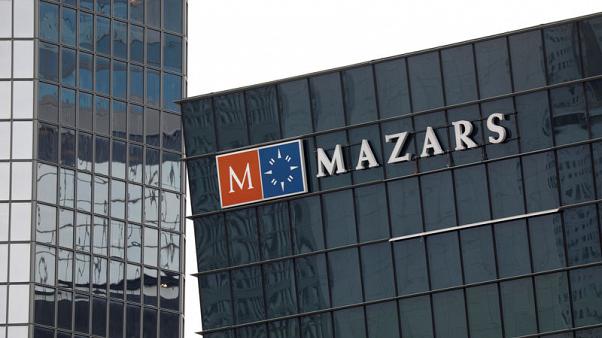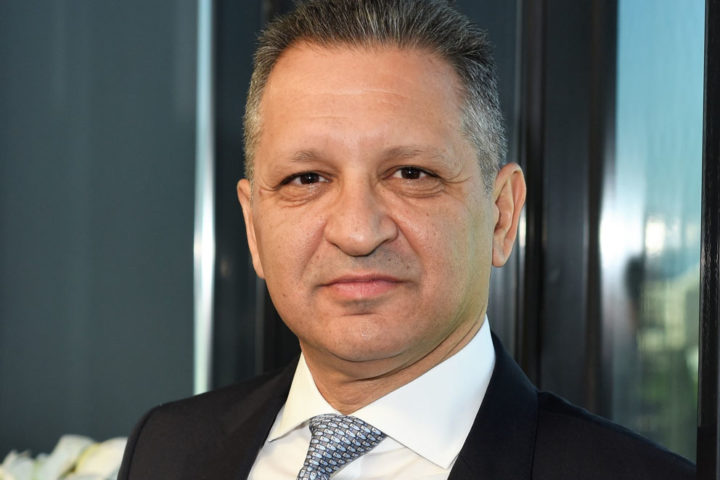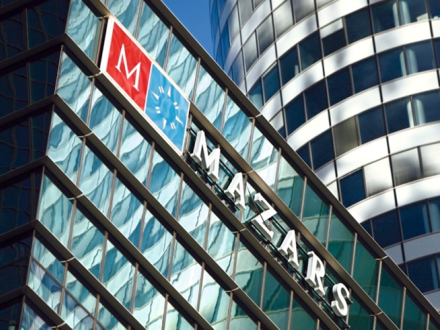* Mazars executive sees merger as part of global expansion *
* Development of China and Russia growth markets *
A senior executive of one of the leading audit and advisory firms believes that the future for Cyprus is bright, which is why Mazars has merged with a local firm to make the island the 77th country on the firm’s global map.
Ranking as a top five audit and advisory firm in its home market of France, Mazars is a leading company throughout Europe, based on a unique integrated model that is based on profit sharing, as opposed to loose alliances.
Loic Wallaert, Partner in charge of International Coordination, told the Financial Mirror in an interview that the firm’s partners “are very optimistic about Cyprus. Maybe in the past it was more difficult, but this is over and everybody is looking forward.”
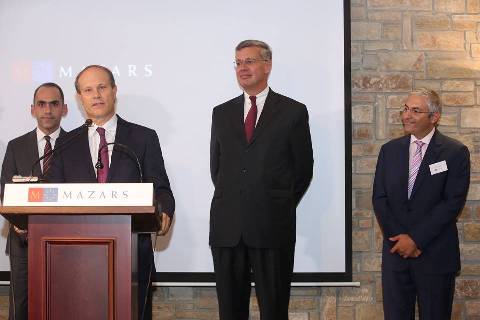 Visiting the island recently to attend a special ceremony to mark the merger of Nacouzi & Co., subsequently renaming the firm Mazars Cyprus, Wallaert said “Cyprus to us is important, because, first, there is a strong local market, it’s a country where a lot of firms position their holding company, and therefore its very important.
Visiting the island recently to attend a special ceremony to mark the merger of Nacouzi & Co., subsequently renaming the firm Mazars Cyprus, Wallaert said “Cyprus to us is important, because, first, there is a strong local market, it’s a country where a lot of firms position their holding company, and therefore its very important.
“Because once you are in Cyprus, you have the overall view, the financing structure in Cyprus is important and we are very strong in banking and insurance. To us this is an advantage also.”
Also present at the event were Finance Minister Haris Georghiades, The French Ambassador Rene Troccaz and Trade, Tourism and Energy Minister Yiorgos Lakkotrypis.
“We see that Cyprus is rebuilding, and on good solid ground. When you look at other countries, they all have their ups and downs. And I don’t know of any country where you don’t have ups and downs, anywhere in the world,” Wallaert said, adding that “the future of Cyprus is bright. We are optimistic about the future and I think the country is taking a good direction.”
SIGNIFICANT CHANGES IN EUROPE
In the interview, Wallaert spoke about the significant taxation changes in Europe, the Brexit, as well as Mazars’ global expansion drive and strategies.
“If I look at the past few years and the current situation and the future, in the past few years we have seen an increase in the tax, because, there were some economies in Europe which were not in very good shape, and therefore a few countries that increased the tax rate. And this has been done in many countries because the state needed to have some revenues.
“I think we have reached a level which is a limit, and now we start to see a decrease in a few countries, a move which we start to see on a regular basis, which happened at the time when you have the so-called ‘country by country reporting’ which is going to lead big groups to disclose the tax they pay in the various countries.
“This is raising for our clients interesting questions, and of course not all questions are answered by the law right now and this is an area where we are working closely with our clients, to make sure that the law is well understood and that it is fully taken into account.
“But this may also lead to a plateau in the tax rate in some countries, and the Brexit will also influence all this.
“What we can say is that there is also the trend that I see more and more for the groups to say ‘we need to have a fair attitude with the tax and we need to pay taxes which are reasonable’. And we at Mazars are deeply involved in that process, saying that we need to have our clients to be reasonable in what they are doing on tax. To avoid the crazy situation where they don’t pay tax in any country of the world and on the back of huge profits, but also to have a good analysis of the tax scheme in each of the country. This is one of the topics on which we are working a lot with the groups and I think they appreciate our view in this respect, to do something which is reasonable for the business community at large, for the countries where the groups operate, and for the individual taxpayer of that country, because it is fair that groups also pay tax.”
Is Mazars active in lobbying, especially where there are some common taxation issues in Europe?
“The tax regulator asks us for our views, on any topic, we do that for tax reasons, also for accounting. Clearly we have an open discussion with the tax authorities and they ask us for our views when there is a new tax to be introduced. They like to have a reading by professional tax advisers on new tax legislation in many countries and we are happy to do that and we also have a comprehensive discussion on what is fair, what is the evolution in various countries, and so on.
“So, it’s not exactly lobbying, it’s open discussion with the tax authority – we are happy to answer their questions on the general landscape of the tax world or in Europe.”
MORE TRANSPARENCY AND FAIRNESS
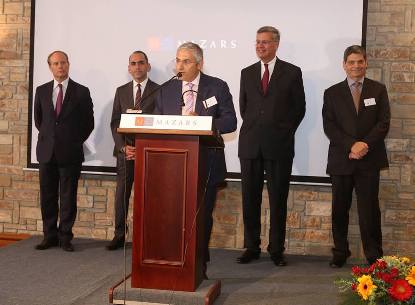 Is the situation that has arisen with Starbucks, Apple, etc., by seeking low-tax or no-tax deals in some jurisdictions, also bad for Europe? There might be some multinationals that could consider to move their tax base elsewhere to other non-EU jurisdictions.
Is the situation that has arisen with Starbucks, Apple, etc., by seeking low-tax or no-tax deals in some jurisdictions, also bad for Europe? There might be some multinationals that could consider to move their tax base elsewhere to other non-EU jurisdictions.
“There is this global approach for tax called BEPS (base erosion and profit shifting) there is a worldwide move, not only in Europe, to say there should be more transparency on tax and things should be fair. Now, of course, it would be impossible to fully regulate the world and it’s something which will never happen. We are not going to have an even tax rate in all the countries one day. This is a dream but it’s never going to happen. Let’s be realistic.”
[BEPS refers to tax avoidance strategies that exploit gaps and mismatches in tax rules to artificially shift profits to low or no-tax locations. Under the inclusive framework, over 100 countries and jurisdictions are collaborating to implement the BEPS measures and tackle BEPS.]
“But there is more and more transparency on this, as BEPS is becoming a huge issue and OECD is looking at that, everybody is looking at that. I don’t think we are still there. Tax is still an incentive for corporations, there is still use for that. But there is a move for more transparency and fairness. Through Praxity, the global alliance of independent firms, Mazars is one of the key players, we can help clients to say what is the limit between something which is going too far and something which is more reasonable. We are well positioned, and based on what we see in all the countries, we consider where to position the customer in terms of tax rate.”
A total of 11 countries have signed up for the financial transaction tax (FTT) and are in agreement to have some sort of framework by the end of the year. Isn’t that pushing it to the other extreme or having universal taxation in certain sectors. Again, might it make the EU less competitive?
“There will always be tax difference, because, there is a move to more harmonisation, but there will always be a different thing. When I say ‘tax’, it can be VAT, customs, income tax, it’s a huge spectrum.
“There is a real push to harmonise taxation, but it will take time. And that’s why at Mazars we clearly are a tax practice with a presence all over the world and this is one of the strengths of Mazars too. We gather our tax people on a regular basis, to make sure that we share the vision of a common market, and the direction of where we are going, and exchange a lot on a regular basis to make sure that we can help our clients, being fully aware about the moves that are going to come in 2-3 years.
“On international tax we have a lot of people working on transfer pricing because this is also a very significant issue and therefore they gather frequently because transfer pricing is a fully international topic. We are one firm operating in 77 countries, we are all partners, and that helps because we work together as a team, even though we are not in the same country.”
THE MAZARS CULTURE
What is the niche that identifies Mazars clients?
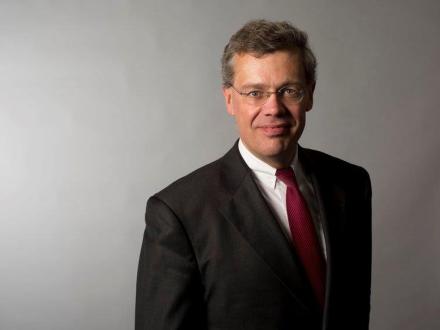 “The first feature of Mazars is that it’s one firm operating in 77 countries. So, it is one group of partnership. I think there are other features in which we are very strong – in big listed companies, in tax, and if you look at sectors of activities, we are very strong in banking and insurance, and we are heavily developing also the shipping (we just did a merger with a specialist firm in Germany). We are also developing heavily energy in a wider sense, because we believe that is the topic of tomorrow and there will be some hot topics – energy, water. We know that it is an area for development in which we have a group of partners working on that in Europe, in Africa and the rest of the world.
“The first feature of Mazars is that it’s one firm operating in 77 countries. So, it is one group of partnership. I think there are other features in which we are very strong – in big listed companies, in tax, and if you look at sectors of activities, we are very strong in banking and insurance, and we are heavily developing also the shipping (we just did a merger with a specialist firm in Germany). We are also developing heavily energy in a wider sense, because we believe that is the topic of tomorrow and there will be some hot topics – energy, water. We know that it is an area for development in which we have a group of partners working on that in Europe, in Africa and the rest of the world.
“And the way we operate in this sector is we have ‘Thought leadership’ people developing sectors and help us help our clients to say ‘this is where your industry is going’.”
“Mazars is very strong on ethics and very strong on values. What is important to know is that our new Cyprus partner, Petros Nacouzis, started his business career within Mazars in the UK. We have followed Petros’ career as he became more experienced, we know the family, we know Pavlos (Nacouzis), and therefore we know that we are in good hands.
“We share the same values, we are careful with that we are doing and we are extremely happy with this merger. Therefore, we are fully confident about the business we are doing in Cyprus. We know they are helping the clients, not only in Cyprus, but promoting the good parts of Cyprus to our international clients.
CHINA, RUSSIA AND THE MIDDLE EAST
What are Mazars’ plans and strategies in China, Russia and the Middle East?
“We did a very significant expansion in China in the beginning of the year, where we had a strong practise in China, mainly dedicated to help other groups going to China. We did a merger with a very significant Chinese firm which has Chinese clients that are fully international, and we wanted to follow these clients on an international basis. We have created for these Chinese firms what we call a “Chinese desk” with people who speak Mandarin. And again, because we are one firm in 77 countries, this team is available to the entire network. If, say, the Cyprus partners need someone who speaks Mandarin, one of the team will fly here and work with these clients to make sure they understand what is happening in Cyprus and to be able to reach out to the world, to be able to connect.
“And it is true that Cyprus is one of the countries where Chinese want to go, the Russians want go, or even Gulf groups, where they comes first to enter Europe. So it is a key location.
“Russia, we are developing heavily. We have a practice with four service lines – audit, advisory, tax and law. All four service lines are developing extremely well, and we have a strong impression and reputation in Russia because we are viewed as a European firm. We work more and more with Russian groups, because they like our European culture, which is multicultural and not under the domination of one country. So, our clients want a firm with very high technical standards in all fields, with some people who are able to help them all over the world. And we have a Russian Desk in many countries, which are fully integrated. So, again, if the Cyprus office needs someone speaking Russian, there is no issue.
“Russia is important, it is a booming country for us. This may come as a surprise to some, because of the economic situation in Russia, but for us it’s a booming country.
“In the case of the Gulf and the Middle East, you could say it’s the same story, where again we are viewed as a European-origin firm. We are a worldwide firm, but we started in Europe. And therefore the positioning vis-a-vis the Middle East is also special, and people appreciate that. And of course it’s not only the market positioning, it’s also the value which comes from that.”
“We have one strategy, to be one partnership worldwide, one firm, operating in 77 countries. The goal is to serve our clients. There may seem to be direct competition, but there is absolutely no issue. We publish our consolidated returns, and it is a consolidated profit which is shared among all partners. We are a young firm, and this clearly is one of our strengths, and we are the only firm publishing in a transparent way our financials.”
Will there be any significant change in Mazars in the future or has Mazars already undergone significant change to get to where it is today?
“Mazars has extremely strong values and organisation. And we believe that we are unique. When we ask our clients, what do they appreciate when they use Mazars, they tell us it is the values and the organisation. So, clearly, there will be no revolution within Mazars. We have a very clear strategy of where we want to go, we know exactly what we want to be in five years, where we want to go and how we will go there, and there is no plan to change the business model. We will, of course adapt, and each time we do a merger, the firm joining the family is bringing in new ideas, new views.”
WHO’S WHO: LOIC WALLAERT
 Loic Wallaert, partner in France and Advisor to the Group Executive Board, joined Mazars in 1995. He has a significant experience in the audit of large listed international groups such as Danone, Icade, Pernod Ricard, PSA Peugeot Citroen, Publicis and more recently Schneider Electric and LVMH.
Loic Wallaert, partner in France and Advisor to the Group Executive Board, joined Mazars in 1995. He has a significant experience in the audit of large listed international groups such as Danone, Icade, Pernod Ricard, PSA Peugeot Citroen, Publicis and more recently Schneider Electric and LVMH.
Within Mazars, Loic is advising the Group Executive Board on international operations and has thus a deep knowledge of Mazars offices around the world. He also directly coordinates countries in the EMEA region (including Cyprus) and in North America. He has also been involved in many external growth projects within the Group.
Since 2012 he is also a member of the Governing Council of Praxity, the world’s largest alliance of independent and unaffiliated audit and consultancy companies.

